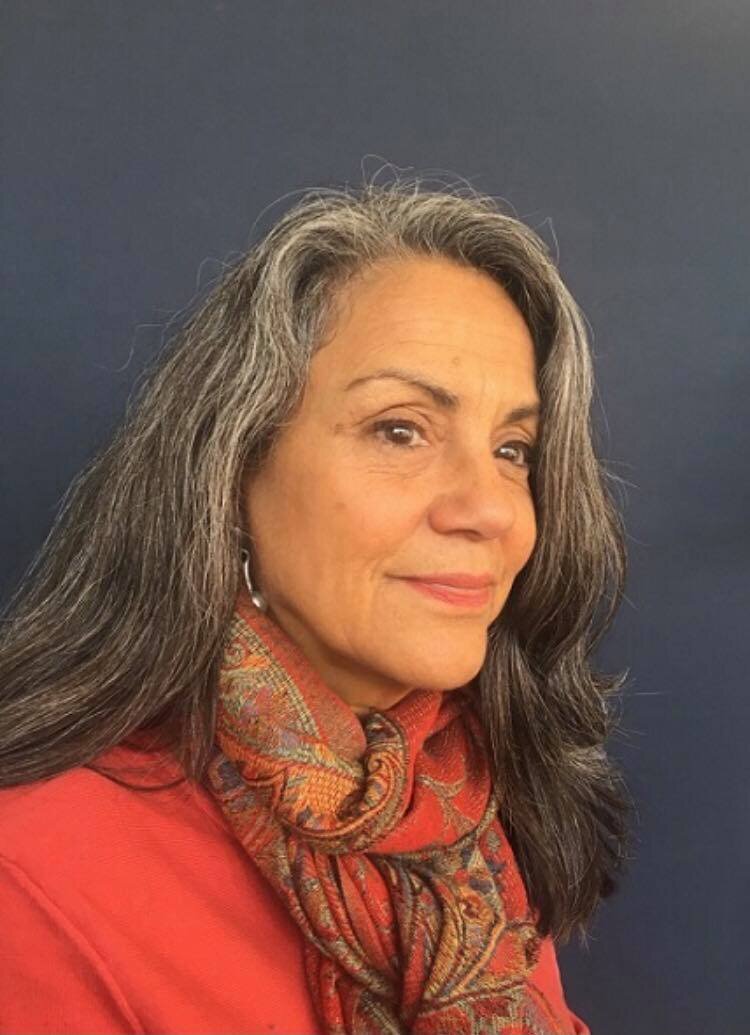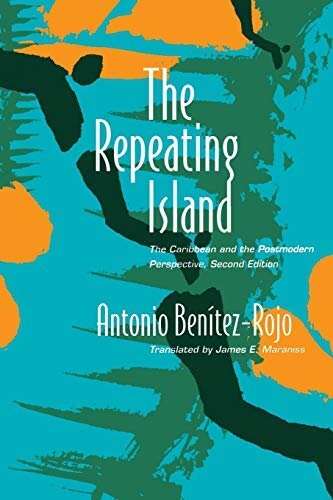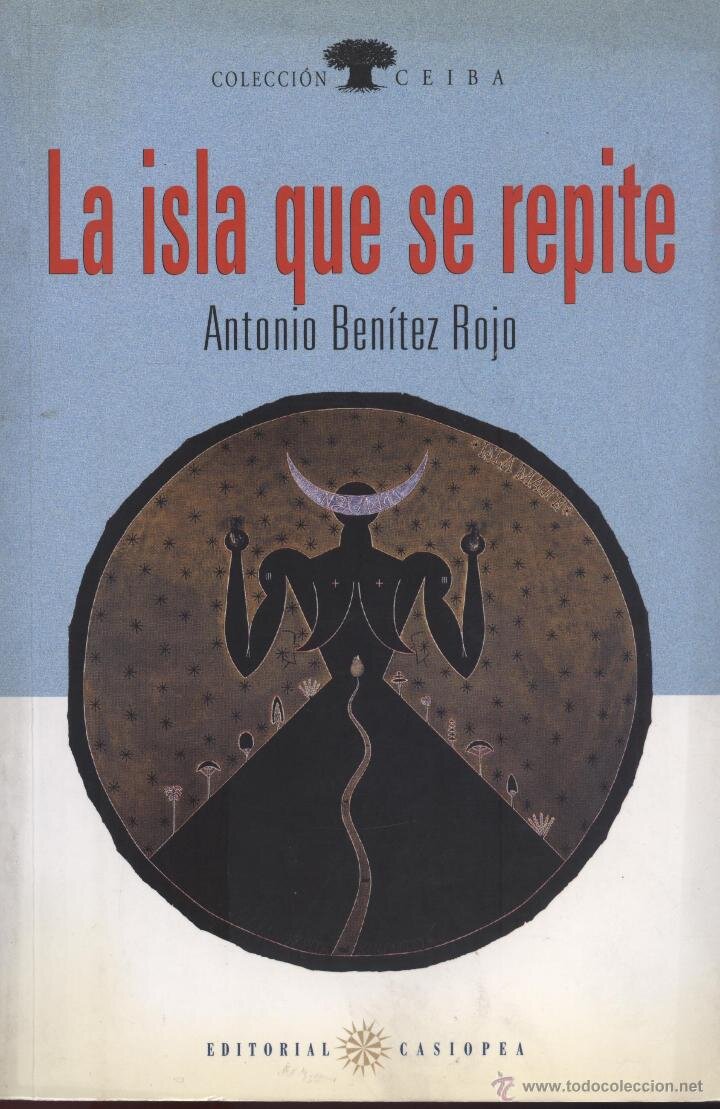Ivette Romero and Lisa Paravisini-Gebert, scholars and editors of Repeating IslandsBy Amaury Rodríguez, Nelson Santana, and Emmanuel Espinal
March 3, 2021
Since 2008, Repeating Islands, a blog edited by Lisa Paravisini-Gebert and Ivette Romero, has become an essential source of information and insight into Caribbean society. Lisa Paravisini-Gebert is a professor at Vassar College where she holds the Randolph Distinguished Professor Chair while Ivette Romero is Professor of Spanish and Director of Latin American Studies at Marist College.
Growing up in her native Puerto Rico, Paravisini-Gebert became fascinated with the disparate histories between Caribbean people across the Atlantic. A scholar in the fields of literature and cultural studies, Paravisini-Gebert specializes in the multidisciplinary, comparative study of the Caribbean. Paravisini-Gebert has authored multiple books and edited a number of collections of essays including Phyllis Shand Allfrey: A Caribbean Life (1996), Jamaica Kincaid: A Critical Companion (1999), Creole Religions of the Caribbean (2003, with Margarite Fernández Olmos), Literature of the Caribbean (2008), and Sacred Possessions: Vodou, Santería, Obeah, and the Caribbean (1997).
Originally from New York and raised in Puerto Rico, Romero-Cesareo pursued a doctoral degree in French literature as a means to explore her family’s diverse Caribbean and trans-Atlantic roots, as noted on the Repeating Islands website. Through her research, she examines Caribbean testimonial narrative, women’s studies, and visual arts. Romero-Cesareo’s work has been published in several venues including the journals Anales del Caribe, Callaloo, Mango Season, Nineteenth-Century Literature Criticism, and Sargasso. Additionally, Romero-Cesareo has co-edited two volumes with Lisa Paravisini-Gebert: Women at Sea: Travel Writing and the Margins of Caribbean Discourse (2001) and Displacements and Transformations in Caribbean Cultures (2008).
As scholars, curators, editors, journalists, translators, bloggers and digital archivists, Paravisini-Gebert and Romero bring an interdisciplinary approach to their ongoing work at Repeating Islands where they capture the wide array of sounds, smells and colors that make the Americas. From music to literature, cinema, politics and food, the team behind Repeating Islands keep readers up-to-date in a concise and elegant fashion that touches on the present and the past by reminding readers of lingering geopolitical realities and historical memories in the hemisphere. In this interview, professors Ivette Romero and Lisa Paravisini-Gebert recount the origins of the Repeating Islands project, the difficulties they faced along the road and the joys of working together to bring new perspectives on the Caribbean and beyond.
Can you talk about the genesis of Repeating Islands?
Lisa Paravisini-Gebert/Ivette Romero: In Fall 2008, we had several conversations on how, with our mutual focus on comparative Caribbean Studies, we could contribute a coherent project in a field often divided in varying ways: by geographic/topographic, political/historical, and social conditions, and mostly, by linguistic boundaries. We favored the blog format because it allowed for a variety of materials—including texts, images, video and audio—and for interaction with a wide and far-flung community of readers, who could post comments and offer feedback from any space, from across the archipelago, the broader Caribbean region, and the diaspora around the world. Our choice of the blog title—Repeating Islands, inspired by Antonio Benítez Rojo’s influential text, The Repeating Island—reflects our main purpose: to add to the conversation taking place in a growing community of bloggers as a news aggregator with wide-ranging and heterogeneous information from/about/echoing a Caribbean pulse.
LP-G: We were also inspired by news aggregator websites such as The Blaze, the Drudge Report, and the Huffington Post—which had led to the formation of active cyber-communities—but we wanted to target a narrower audience, a community with more affinity with our scholarship and teaching interests as well as with our personal experiences. We also favored blog technology because it offered versatility in terms of our individual input, without having to rely on advertisements or other types of intervention, which allowed for complete freedom in selecting and posting eclectic material for anyone interested in news and information about the Caribbean and its diaspora. The blog was officially launched on February 27, 2009.
What role do translation and bilingualism play in this digital project?
LP-G: From its inception, the main goal of Repeating Islands has been to bring the Caribbean community-at-large closer through the sharing of news and information while trying to bridge the linguistic divide in the region. We chose English as an international lingua franca to reach readers all over the globe, while providing links to original articles in a variety of languages used in the Caribbean, including Dutch, English, French, and Spanish (with occasional links to articles in Creole or Papiamento).
IR: For articles in Dutch, we have had the invaluable help of our collaborator and friend Peter Jordens (Curaçao), who often provides translated posts. We are also grateful to other readers and collaborators who have also occasionally provided translations and links to news from the Dutch Caribbean, for example, Dale S. Battistoli (Suriname) and filmmaker Ida Does (Suriname/Aruba).
LP-G/IR: Although we both dream of a multilingual Caribbean community, translation plays an essential role in this project stemming from our desire to bridge the language gap and to bring attention to the commonalities and history shared by the islands and all the countries touched by the Caribbean Sea. This is a natural consequence of our upbringing and academic trajectories. We were both bilingual (Spanish and English) from a young age, although in quite different settings—Lisa’s childhood experience in Puerto Rico in bilingual schools, and undergraduate studies in the U.S.; Ivette’s childhood experience in New York City, then middle/secondary school and undergraduate studies in Puerto Rico. Academically, we were both steeped in “comparative” interests. Lisa’s undergraduate and postgraduate studies were in Comparative Literature, and Ivette’s undergraduate and postgraduate studies were in French Language and Literature/Romance Studies; this training, coupled with the joy of learning other languages, led to comfortable fluency in at least four languages. Therefore, the multilingual aspect was a given right from the start; it was an approach that arose quite naturally.
What are some of the ups of downs of keeping Repeating Islands alive while conducting your own research and teaching duties?
IR: OMG! What readers don’t always understand is that Repeating Islands is just Lisa and Ivette. The reality of the blog is that it is a labor of love. Because of our positions in our respective institutions (Vassar and Marist) engaging in teaching, class preparation, grading, research and scholarship, and life in general, we only have a few hours a day to dedicate to the blog.
LP-G: Although in principle, we are committed to posting every day, sometimes you can see the ebb and flow of our professional life and time management reflected in the number of daily posts… or sporadic silences. At times, we have been lucky enough to have the occasional help of a student research assistant, when available, a few hours a week. With no staff and no funding, it’s just the two of us and our commitment to keep the project going because we feel a responsibility to the thousands of people who visit the blog every day. Our decision to not have ads, as we mentioned earlier, was an early decision, but it impacts the way we look at the blog: without ads, there is no income, without income, there is no staff; so much of our work depends on how much time we manage to eke out to try to meet our goal of posting daily. It is a delicate balance, and some moments are easier than others.
“With no staff and no funding, it’s just the two of us and our commitment to keep the project going because we feel a responsibility to the thousands of people who visit the blog every day.
”
LP-G/IR: This said, there are also rewards that make it all worthwhile. We are so pleased that the blog is being used as a teaching tool or an additional resource in courses in different institutions. What we are particularly proud of is that with 12 years of posts, many of our readers have been using Repeating Islands as an archive for ephemeral material; to access data on wide-ranging topics related to Caribbean arts, literature, architecture, cultural elements, environmental aspects; or to find information on conferences, job-postings, and grants.
Are there any behind the scenes stories you might want to share?
LP-G: One of the decisions that we made early on is that the blog was going to be a news aggregator, gathering (and repeating!) updates related to arts, literature, and culture as comprehensively as possible. We post items of all sorts; the diversity of points represented in the blog often do not reflect our beliefs, opinions, or idiosyncrasies. We were/are not seeking to create controversy. This, of course, is unavoidable, and we are sometimes surprised by the kinds of debate that develop in the “Leave a comment” section found below each post. When this happens, we simply follow the conversation (when time permits) and let them run their course. If someone is particularly offensive and hurtful, then we remove the comment. The upside is that some readers contribute productively by adding helpful comments, extra links, or additional information to illustrate a point or to offer other points of view.
IR: There have been some heartwarming moments through the years–it is always a pleasant surprise when someone has found long-lost acquaintances or family members, or has located the tomb of an ancestor by communicating through a post commentary. Other times, people let us know that they have been able to establish connections with other scholars for their research, or that they have found a conference that they had not heard about previously, or that they received grants or participated in workshops announced through the blog. This is another one of the rewards. It is also genuinely satisfying when one of us is traveling and we unexpectedly run across readers who happily cheer us on!
Sometimes there is a story that backfires. For example, Lisa posted a story that a reader from a reputable institution sent to her, “Nemo eats lionfish?” The article posited that “the cute and colorful Clown Fish of ‘Finding Nemo’ fame” was (as a natural predator) the solution to the Caribbean lionfish problem. Of course, it turned out to be a hoax, a prank, much to our mortification and amusement. After someone politely reached out to explain the situation, Lisa was literally in tears… from laughing so hard as she deleted the post. Clearly, we had been too exhausted that week to see the funniest line of all, “Citing the expense of bringing in more Clownfish to the island, the company will now post fake inflatable Clownfish around dive sites on the island to see if the Lionfish will simply be scared away.” We are both still laughing now!
Agwe-Ta-Royau (1955) by Haitian painter Gesner Abelard adorns the Repeating Islands banner. Source: Jonathan Demme collection.
Who are some of the contributors to Repeating Islands?
LP-G/IR: We are the sole editors/content curators, due to our affiliation with our respective universities. We are academically-based blog, and not a journal, so we very rarely post a previously unpublished piece. As a news aggregator, we focus on establishing “connections” to other publications and sources. However, since about 2010, Peter Jordens, who is based in Curaçao, has been our main contributor in several ways. For many years, Jordens had compiled a comprehensive list of conferences which he distributed to other scholars and researchers via email. He reached out to us with the idea of sharing it with Repeating Islands to access a broader audience within a more specific scope, Caribbean conferences. Thus, we established a mutually beneficial relationship, for which we are deeply thankful. For about a decade, we uploaded his monthly conference updates. Recently, “due to the pandemic, the changing nature of conferences, and reluctance to encourage any face-to-face interaction,” he has stopped creating the Caribbean Conference updates, and has focused more on sharing links for interesting news or contributing translated items from the Dutch-language media.
LP-G: Most particularly, we appreciate the invaluable help of our unseen contributors—the undergraduate research assistants who are able to help for a few hours a week, when we are fortunate enough to get them.
IR: Neither one of us has enough time to engage in daily monitoring of the many social media outlets, and some of us (Lisa) are more allergic to social media than others (Ivette), but we try to connect with sources through social media as another way to repost and share news that may not be published in other venues.
LP-G/IR: Last but not least, our readers are exceptionally valuable contributors when they reach out to us to send a variety of news items—such as information on events, exhibitions, conferences, calls for papers, and new books—that we regularly post. We always welcome our readers’ suggestions and items for publication. We also count on authors and publishers who share additional news and announcements. This type of interaction and inter-collaborative communication (including this interview) is what Repeating Islands is all about!
—
Related
Zaire Z. Dinzey-Flores on The Roots of Puerto Rico's Humanitarian Crisis
The Borders of Dominicanidad—Interview with Lorgia Garcia Peña
Muertes Civiles in Dominican Republic—Interview with Amarilys Estrella
#WomenInTranslation: Interview with Sophie Maríñez, Poet and Translator
Dossier on Women in Translation in PDF
Boletín poético Brigadas de la palabra en PDF
Colonial Phantoms –Interview with Dixa Ramírez
El periodismo cultural dominicano visto por Zaida Corniel
The Paradox of Paternalism—Interview with Elizabeth Manley
The Nearly Lost Story of "El Caballo Indio" Sención Minaya and his Merengue de Guitarra
Alina Ramírez: Reciclaje creativo una solución verde a la polución
Víctor Arcturus Estrella: arte y conciencia
La Leyenda Viviente Ray Chino Díaz: patrimonio cultural de la música
Ten Research Ideas About Dominicans That You Should Pursue (Part 1)
Fifteen Research Ideas About Dominicans That You Should Pursue (Part 2)
Eight Research Ideas about Dominicans That You Should Pursue (Part 3)
Three Research Ideas About Dominicans That You Should Pursue (Part 4)
Twenty Research Ideas About Dominicans You Should Pursue (Part 5)
Four Research Ideas About Dominicans You Should Pursue (Part 6)









